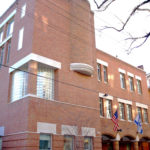Students struggle to balance high holidays with academics
Several Jewish students described making difficult choices to balance religious and academic obligations around the high holidays

Yale Daily News
Amidst the September Jewish holiday season, students and faculty reported struggling to balance their observance with their academic schedules. And while students have found professors to be accommodating, some have called on the University to lighten the burden they carry throughout this important time of the year.
Four students and one faculty member spoke with the News about falling behind on work and being unable to fully connect with their faith on Rosh Hashanah and Yom Kippur, the two most important days of the year for people of Jewish faith. Rosh Hashanah, the first of the holidays, began on Sept. 6, and Sukkot concludes this Tuesday. In an email to the News, Lia Solomon ’24 wrote that her experience trying to balance her competing commitments was “extremely disorienting.”
“Having so many holidays in consecutive weeks is really difficult for my school life,” Solomon wrote in an email to the News. “In addition to missing tons of class, I don’t do homework on those days so I am always catching up from content and work I missed. Honestly, it is hard to feel settled into school when every week since the second week of classes I have missed at least one day.”
For some students, Solomon among them, this act of balancing work with school not only impacts their academics, but also how much they can engage with their faith.
Giovanna Truong ’23, who is contemplating a conversion to Judaism, said that by having to attend classes on the holy days, she was not participating fully in observance. As a result, she said, she felt like “an imposter.”
“I went to class … that all made me feel like I wasn’t participating to the fullness that maybe I should be if I claim to want to be a part of this community,” Truong said.
In an email to the News, Yale College Dean Marvin Chun wrote that the Jewish community “is not only welcome at Yale; it is a vital part of it.” He added that the Jewish community receives formal support from Yale College. This starts with mandatory training for all Yale College students that introduces them to staff and policies they can utilize, or accommodations that enable them to reschedule academic work when it conflicts with days of worship.
While Solomon described a number of challenges that come with being an observant Jew on campus, he said the high holidays — which occur at the beginning of the fall semester every year — are “probably the hardest.”
In an email to the News, Truong explained the guilt students can feel in not fully participating in the holidays.
“I asked myself: am I Jewish enough to take the day off in good faith? Or, they feel guilty because they don’t take the day off,” Truong wrote. “It’s a catch-22.”
But on an individual level, all the students interviewed by the News have had a positive experience in receiving extensions from faculty. Solomon, Truong and Richard Hausman ’24 all described the process as incredibly simple. Professors were always accommodating to their requests to miss class or to receive extensions on papers, they said.
Still, problems persist within Yale College’s accommodation process, Hausman and Truong say. They both said that the act of asking professors for permission to miss class was a burden in and of itself. For this reason, Hausman attended a discussion section on Yom Kippur.
“The default state of things is not very accommodating to Jews,” Hausman said. “Jews are still a minority on campus but at Yale it’s a pretty large minority so it might be worth it from an ethical perspective to make the default state accomodating to Jews.”
But Chun said that he makes himself available “informally” to all students who wish to tell him about needs that require additional support, and that he communicates regularly with Jewish community leaders. “It’s very important to me to support Yale’s Jewish community, and my door is always open,” he said.
Hausman agreed with Truong that having all teachers be aware of the holidays before they take place and making class optional on those days would alleviate the burden placed on Jewish students to ask each professor for an exemption.
“If there was an across-the-board policy that made it easier to ask for religious exemptions for class or extensions on work that would take a lot of pressure and stress off of individuals because it would make it so that it is a real recognized thing and they don’t need to be scared about approaching professors, especially first years,” Solomon said.
Sidney Cahn, a senior lecturer in the Physics Department, added that requesting individual exemptions from classwork places an undue burden and level of stress on students.
“But the students put themselves under tremendous pressure,” Cahn said, “and so [by observing the holidays], they would put themselves even further behind. So they have to wrestle with what they’re going to do. Now, of course, no man can serve two masters. So it’s difficult.”
Cahn, however, did not advocate for canceling classes on Yom Kippur, as this decision might mean that holidays from all faiths would also have to be recognized with canceled classes, which would be unsustainable.
Some Jewish students observing the holiday of Sukkot will continue to miss classes on Sept. 27 and Sept. 28.
Olivia Tucker contributed reporting.
Correction, Sept. 27: This article has been updated to reflect that Truoung has not yet decided to convert to Judaism, and is still in the thinking stages.








